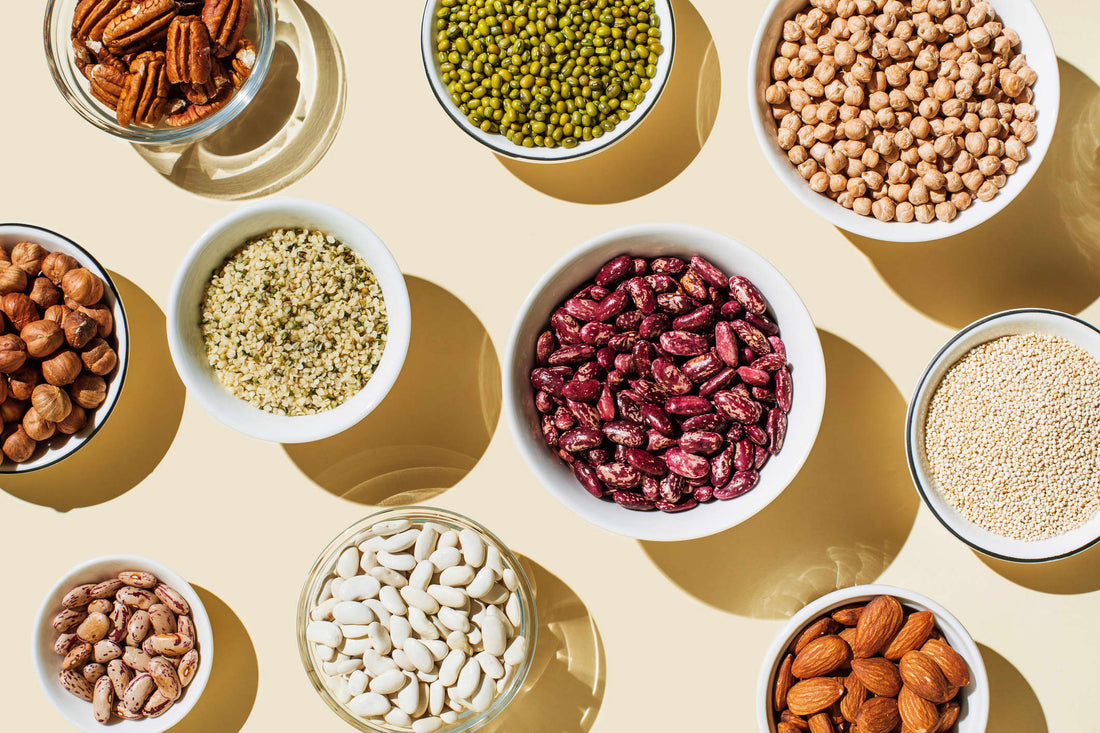When most people think of fibre, they think of keeping regular bowel movements, but fibre is so much more than that. It’s one of the most underrated nutrients for both gut health and heart health, two systems that are deeply connected. Yet, most of us aren’t getting nearly enough.
Why Fibre Matters
Fibre is the part of plant foods that your body can’t digest. Instead of being broken down, it travels through the digestive tract doing incredible work: it feeds your gut microbes, supports healthy cholesterol and blood sugar levels, helps you feel fuller for longer, and keeps waste moving through smoothly.
The recommended daily intake is around 25–30 grams per day, yet on average, most people only eat about half that amount.
Different Types of Fibre
Not all fibre works the same way. Both are essential:
-
Soluble fibre: dissolves in water to form a gel, helping lower cholesterol and regulate blood sugar (found in oats, beans, flaxseed, apples).
-
Insoluble fibre: adds bulk to stool, preventing constipation and keeping the digestive system moving (found in whole grains, vegetables, seeds).
-
Prebiotic fibre: feeds your beneficial gut bacteria, which in turn create short-chain fatty acids that reduce inflammation and protect your gut lining (found in onions, garlic, chicory root, Jerusalem artichokes).
Fibre for a Healthy Heart
Research consistently shows that fibre lowers the risk of heart disease. Here’s why:
-
Soluble fibre binds to cholesterol in the gut, helping remove it from the body.
-
Fibre slows the absorption of sugar, balancing blood sugar levels and reducing the risk of diabetes (a major heart disease risk factor).
-
A high-fibre diet is linked to lower blood pressure and less systemic inflammation.
Fibre for a Happy Gut
Your gut microbes thrive on fibre. When they ferment certain fibres, they produce compounds that soothe inflammation, nourish the gut lining, and even support immune balance. Fibre also keeps the bowels moving, helping your body eliminate toxins efficiently.
Herbal & Natural Fibre Boosts
Herbal medicine offers beautiful ways to support fibre intake:
-
Psyllium husk: rich in soluble fibre, helpful for cholesterol and bowel regularity.
-
Flaxseed: a blend of soluble and insoluble fibre, plus omega-3s.
-
Chia seeds: gel-forming fibre that’s gentle on digestion.
-
Slippery elm and marshmallow root: while not “fibres” in the strict sense, their soothing mucilage supports the gut lining alongside dietary fibre.
How to Add More Fibre (Without the Bloat)
-
Increase gradually so your gut has time to adjust.
-
Drink plenty of water to help fibre move smoothly.
-
Mix up your sources: fruits, veggies, legumes, whole grains, nuts, and seeds.
-
Try simple swaps:
- White bread/pasta → Wholegrain
- Fruit juice → Whole fruit
- Crisps → Popcorn.
Fibre is not just about digestion, it’s a powerful ally for your heart, your gut, and your overall wellbeing. By bringing more plant foods (and supportive herbs) into your daily routine, you nourish both your body and the trillions of microbes that help keep you healthy.
This week, why not set yourself a fibre challenge? Add one extra high-fibre food to each meal and notice how you feel.

